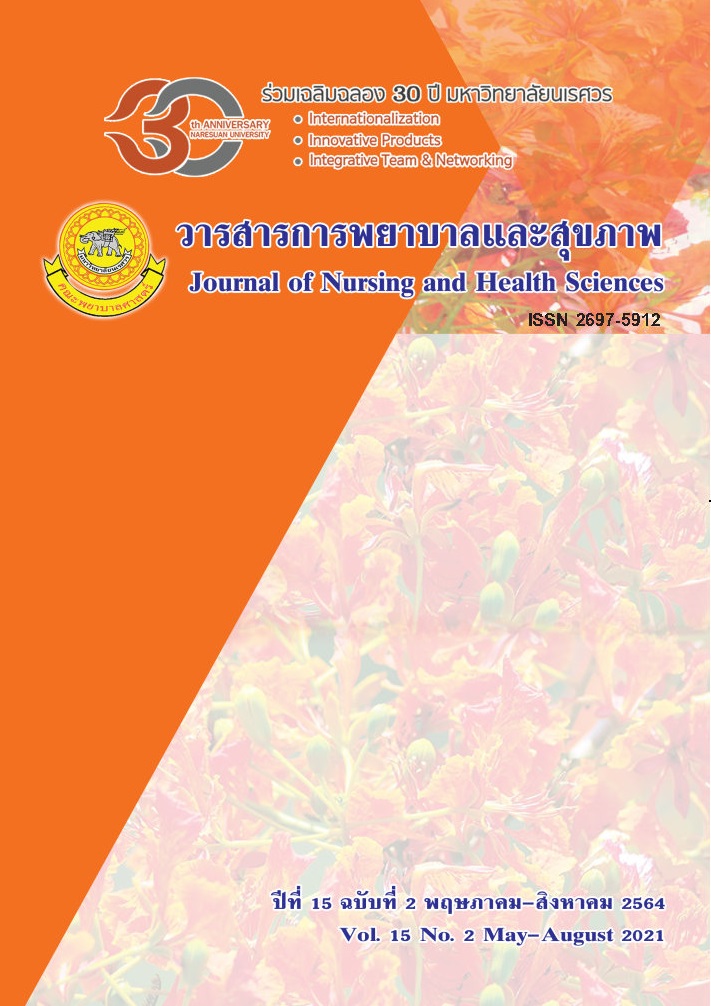Executive Functions (EF) Promotion in Early Childhood
Main Article Content
Abstract
Executive Functions are a set of thought processes. As a result of the prefrontal cortex transmits and connect various information with other parts of the brain, human being able to remember, control and direct their thoughts, emotions control, attention, inhibit themself from stimuli, manage and control their behavior in order to reach the goals. Executive Functions consist of 9 domains, divided into 3 groups of skills: basic skills, self-direction skills and practical skills. These skills gradually develop since fetus single. The most developing are during the age of 1-6 years old, when the brain has the myelination and synaptogenesis processes. This is the golden period to promote executive function before the brain pruning process undergoes, through activities and playing according to the child's age so that children gradually learn happily in a positive context. The activities influencing the brain effectively developed , thinking, analyzing and management.
Article Details

This work is licensed under a Creative Commons Attribution-NonCommercial-NoDerivatives 4.0 International License.
References
Cheewapansri, K. (2002). Learning and the brain. Bankok: Educational and Ethic Promotion.
Chonchaiya, W. (2018). Electronic Screen Media and Executive Function. In Effects of Electronic Screen Media on Children and Adolescents. pp 31-66. Bangkok: Beyond and Enterprise limited.
Chutabhakdikul, N., Thanasetkorn, P.,& Lertawasdatrakul, O. ( 2017). Tool Development and Evaluation Criteria for Assessment of Executive Function in Early Childhood. Nakornpathom: Mahidol University.
Cragg, L., Keeble, S., Richardson, S., Roome, H.E., & Gilmore, C. (2017). Direct and indirect influences of executive functions on mathematics achievement, Cognition, 162, ,12-26. Retrieved from https://doi.org/10.1016/j.cognition.2017.01.014.
Diamond A. (2013). Executive functions. Annual review of psychology, 64, 135–168. Retrieved from https://doi.org/10.1146/annurev-psych-113011-143750
Fay-Stammbach,T., Hawes, D., & Meredith, P. (2014). Parenting Influences on Executive Function in Early Childhood: A Review. Child Development Perspectives, 8(4), 1-7.
Hanmethi, S., Pitaksinsuk, T., & Aramrid, P. (2018). Kindergarten school Teacher Handbook: Executive function Development. Bangkok: Matichon public company limited.
Hanmethi, S.,& Boonmak, P. (2018). Parent Handbook: Executive Functions Development : Since Fertilize – 3 years old . Bangkok: Aksorn sampan press (1987) co. ltd.
Imnamkhao, S., & Srichanchai, J. (2021). Nurse’s role of executive function promotion in early childhood. Journal of MCU Nakhondhat, 8(1), 229-244.
Jones, S. M., Bailey, R., Barnes, S. P., & Partee, A. (2016). Executive Function Mapping Project: Untangling the Terms and Skills Related to Executive Function and Self-Regulation in Early Childhood. Washington: Harvard University.
Khanongdet, K., Thammabuncha, S., Wongmanee, A., Somwong, S.,& Saeluang, N. (2020). The results of the experience using media and toys To the EF (Executive Functions) skills of preschool children in the school to development the teaching profession Southern border provinces. Retrieved from http://wb.yru.ac.th/bitstream/yru/1793/1/..%20EF.pdf
Mektrairat, W. & Chaiwanna,S. (2020). The effects of the 3r process of reading activity packages by the parents to enhance the executive functions of early childhood. Journal of Graduate Studies Valaya Alongkorn Rajabhat University. 14(3), 134-147.
Nopakhun, C. (2018). The Development of Executive Function for 21st Century Preschool Children through Montessori Approach. Journal of Education, Silpakorn University, 16 (1), 75-90
Ooppakarn, D., & Yanachai, O. (2019). What Principle Should We Use to Enhance Learning Development of Early Childhood Children: “Brain Based Learning” or “Executive Functions”. Veridian E-Journal, Silpakorn University, 11(1), 1635-1651.
Palitpolkarnpim, P. (2020). Immunize the Kids with EF. Bangkok: Amarin Printing and Publishing PCL.
Papol, K. (2020). The Activities Arrangement Shadow Puppets Tales that Affect Executive Function for Early Childhood. Journal of Educational Studies, 14(1), 100-113.
Pinthong, B. Chaimonkol, P., & Pongjaturawit, Y. (2018). Family Factors Related to the Executive Function Development in Preschool Children. The Journal of Faculty of Nursing Burapha University, 26(2), 20-28. Retrieved from https://he02.tci-thaijo.org/index.php/Nubuu/article/view/166250
Thanasetkorn, P. (2018). Using Positive Discipline for Executive Function Development. In Hanmethi, S., Pitaksinsuk, T., & Aramrid, P. (Eds.). Kindergarten school Teacher Handbook: Executive function Development. Bangkok: Matichon public company limited.


